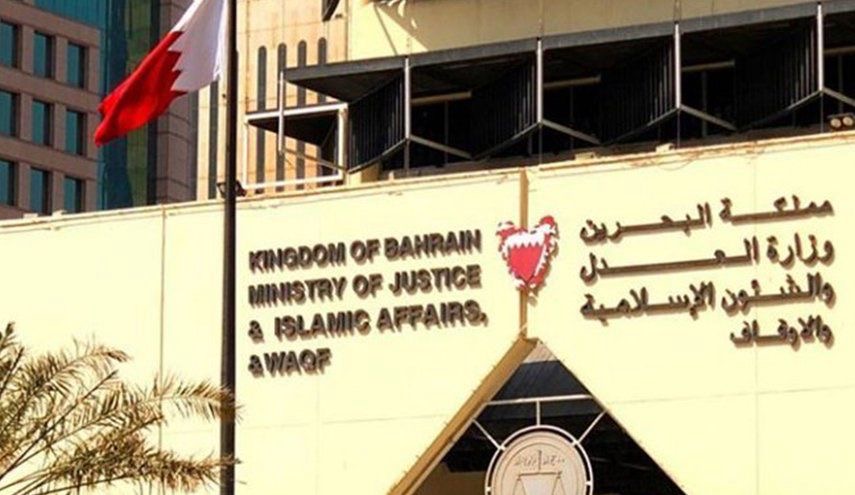Dealing with the judiciary in Bahrain as based on rule of law is no different from being accused of a crime. When examining the process of issuing verdicts and the substance upon which they are based, whether within official and unofficial government networks, it’s easy to come to conclusion that the Bahraini judiciary is influenced by the decisions of the executive authorities, with courts issuing verdicts based on predetermined numbers and years, poses a grave threat to the state’s structure.
It is currently impossible for Bahrainis to rely on this system, where judges preside over courts where the accused are subjected to barrages of insults and threats and not allowed to speak, courts that deliver sentences without a fair hearing. This type of judiciary can’t be trusted, especially in the past decade, which should represent the “constitutional” kingdom system managed by the principles of partnership, democracy, and freedom.
Over the past decade the number and frequency of rulings and sentencing durations have increased, the strict provisions that governed the state following independence having decayed. Back then, sentences ranged between years and decades. Today, they can span decades or even centuries. A judicial ruling in Bahrain does not represent a guarantee, constitute an official conviction, or hold legal or political value. In simple terms, a sentence for a crime involving a significant number of years and suffering can change when circumstances become unfavorable for the government. Then, the language and literature, especially in the legal context, changes at a whim.
This is referring to the legal aspects, which oblige the state to portray the legal reality as unjust and systematic, akin to aspects of the Bassiouni Report. In the political context, we may all return to being “sons of the nation.” However, exploring this legal aspect reveals a scandal that the state might have to confront, potentially sacrificing the tools used for systematic persecution. This is the case of conviction in the Bahraini judiciary.
As for assurance in the rulings of the Bahraini judiciary, it is often worse than a conviction. A conviction can be more secure if circumstances are favorable and there are no geopolitical disturbances, whereas an assurance lacks both permanence and stability. Therefore, calls to trust the judicial system in Bahrain are an invitation to throw ourselves into the middle of the fire.
Here, you can take a quick tour of the acquittals, the pardons, the dropping of charges, alternative punishments, and the omission of cases from state records. Each of these examples include a significant number of Bahraini rulings and names, some of whom died while others remain in prison or are awaiting incarceration.
Innocence in Bahrain, in many cases, serves ulterior motives for the state: blackmail, intended to silence dissent from activists, or a trap through which the target person is monitored and often re-arrested. Sheikh Ali Salman was acquitted, yet his acquittal inexplicably transformed into a life sentence. His Eminence Sheikh Ali Salman has recently completed his ninth year behind bars, which he has spent consoling his colleagues, who are also detainees. His legal defense contained a significant amount of evidence of his innocence, which the court ruled. So why has he been in prison for nine years? The authority cannot tolerate the existence of an independent political discourse that defends rights and demands partnership. Also, the resumed disagreement with the State of Qatar required the presentation of a scapegoat, and he thus became one.
Pardons, the dropping of charges, and promises of a safe return to Bahrain have been used as tricks that quickly vanish for Bahrainis that return home. Hussein Jawad Barwiz’s return was far from safe. Neither he nor Hassan Abdul Ali benefited from having a clean record. In the case of Ali Al-Shuwaikh, there was apparently no justification for the Netherlands to accept his asylum, so he ended up in a Bahraini prison. A similar trend continues with the deceptive provision of some Bahraini institutions, creating an illusion of stable procedures or ongoing transactions with state agencies, falsely implying safety. Sheikh Zuhair Ashour faced such a fate when he renewed his passport, which resulted in his arrest and a life sentence in prison.
Even more concerning is the fact that the judicial system issues semi-official statements through ministers and media professionals. Presently, pro-government media and Parliament have become indicators of the government’s inclination, exploited for rulings against specific opponents or political parties. The public relations forced by this precedent, even if you are innocent or acquitted, means the Interior Ministry may repeatedly summon you, as was the case with some released individuals in the 1990s. Despite your innocence, something as innocuous as writings found on walls could lead the police directly to your home without proper investigation.
Although you may be innocent, in which country does that matter? Under what judicial authority? It requires careful consideration and objectivity. A statement issued more than thirty years ago could become a reason for facing challenges upon entering any Gulf country, leading to deportation. “The ban is not imposed by us but by lists sent by Bahrain,” with the government insisting, “No, you are innocent; there is nothing wrong with you!”
For all of this, it is important to interpret judicial rulings based on the issuing body. Relying on the reassurance conveyed by judgments is naive and unwise. Judicial systems are not the same. Acquittal in a judicial system like Bahrain’s is much more dangerous than a conviction in a democratic country like the United Kingdom or elsewhere, and this has extremely dangerous and important indicators.
- Dr. Sheikh Ali Al-Karbabadi
- December 22, 2023


 العربية
العربية Français
Français Deutsch
Deutsch